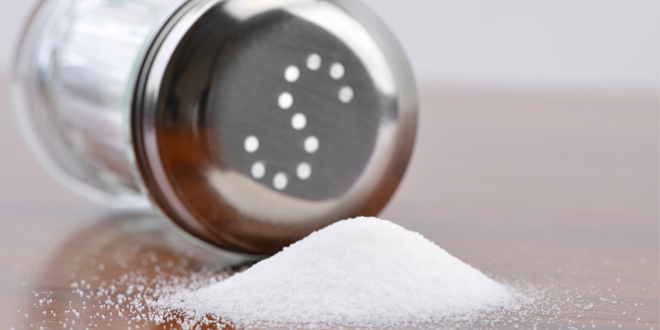
The Truth about Salt, Experts Weigh In
We often consume a lot of salt and do not even realize it. It might be surprising but yes a little excess of this mineral might cause some serious health issues. According to the experts the recommended amount of salt intake is 2300 mg but people exceed this recommended amount and consume around 3600 mg per day.
The consumption of this mineral has exceeded so much so that the American Medical Association has warned people to reduce the amounts of salt they consume on daily basis. Salt contains handsome amount of sodium. Taking in a large amount of this mineral regularly may lead to high blood pressure, heart diseases and other diseases.
These health issues caused by meager pieces of this mineral are dangerous and might take your life. Cutting down on that spoons full of this mineral might save you from going through the pain it causes. Lessen the amount of this mineral, it might be difficult in the beginning since your taste buds wouldn’t be used to the less salty food, but once you start decreasing the amount day by day you would get used to the less salty food you eat now.
Once your taste buds would get used to the less salty food, chances are that you might never want to get even close to the salty meals you took in before. Declaring this mineral to be dangerous for health altogether is not good either. What should be emphasized is that salt should be consumed in moderate quantities.
Taking in very less amount of this mineral can be as dangerous as taking in large amounts of this mineral. There are many aspects of this mineral of which we have little knowledge. Salts such as iodine and sodium chloride are important for the healthy functioning of our vital organs. These are essential for maintain fluid balance, body temperature, nerve function and muscle function.
All these enumerated objectives are important absence of any of these might put your health at risk. Moreover, salt tends be of primary importance when it comes to maintain the balance between acidity and basicity of our body which in more familiar terms we name as blood pH.
Decreasing salt altogether form your diet might put you at risk of an increased cholesterol level and triglyceride level which result in heart diseases. All these functions which this mineral performs are vital for the proper growth of our body. This mineral thus tends be important part of our meals which provide for a lot of things we didn’t knew before.
We must not label salt as good or bad, because this mineral is itself beneficial but when taken in large quantities might be dangerous. Thus if you are taking in a lot of salt you must curb on that amount whereas if you are not at all taking in salt you should incorporate reasonable amount. Thus moderation is you need to b healthy.
Low-Sodium Salt Alternatives
If you find that you or a loved one really cannot live without the taste of this mineral , then it may be worth using a low-sodium salt alternative.
These sodium-replacement salts taste the same as normal table this mineral but use potassium instead of sodium as a key ingredient. In fact, they may help to lower blood pressure because of the helpful effects of potassium.
Who Shouldn’t Use a Sodium-Replacement Salt?
Unfortunately not everyone should use a sodium-replacement salt. If you have kidney disease, or are taking certain blood pressure medications, a large increase in potassium could be harmful. Please check with your doctor before using a sodium-replacement salt.

